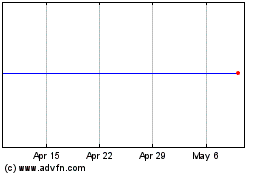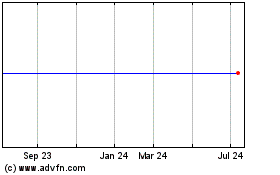Blind Faith in Bezos May Sting Investors -- WSJ
June 23 2017 - 3:02AM
Dow Jones News
By James Mackintosh
This article is being republished as part of our daily
reproduction of WSJ.com articles that also appeared in the US print
edition of The Wall Street Journal (June 23, 2017).
Investors think Jeff Bezos has the magic touch. Few companies
other than Amazon.com Inc. could announce a nearly $14 billion
takeover of a mature firm, give no details of why they are buying
the very business model they're trying to disrupt, and have their
market value rise by more than the takeover price.
Since Amazon said last week that it would buy upscale grocery
chain Whole Foods Market Inc., multiple theories have circulated
about what it is up to. Some think it is about convenience
shopping. Some that it is about customer data. Some suggest
logistics, the grocery supply chain, or an extra distribution
channel for the company's growing range of own-brand electronics.
Still others think Amazon hasn't really got a strategy yet. What
all seem to agree on is that Amazon will make it work, and other
grocers should be cowering in the their freezer cases.
Amazon doesn't inspire the near-religious fervor found among
Apple's true believers, but the online-shopping-to-movie-studio
conglomerate does depend on faith, hope and charity. Faith in Mr.
Bezos's inventiveness provides the essential underpinning for
Amazon shares, while investors hope that he doesn't really think of
the company as a charity to finance wacky new ideas.
Amazon -- like Google and Facebook -- has a successful core
business, pays little heed to shareholders and plows its spare cash
back into expansion and research and development rather than
dividends. In the 20 years since it listed, it has made a total of
$5.7 billion in net income, more than half of that in the past two
years. It has spent $64 billion on R&D in the same period,
including $4.8 billion in the first quarter alone.
Mr. Bezos set out his principles in 1997. "We will continue to
make investment decisions in light of long-term market leadership
considerations rather than short-term profitability considerations
or short-term Wall Street reactions," he told shareholders.
Investors have bought in to the idea that by not maximizing
profit in the short term, Amazon can maximize profit in the long
term -- even if, 20 years later, the long term still hasn't
arrived. At most listed companies, the exact opposite is true, with
management under constant pressure to boost dividends and
buybacks.
"It's become easier to invest as a private company than as a
public company," says James Anderson, a partner at Edinburgh-based
Baillie Gifford & Co., whose biggest holding is Amazon.
"There's a small number of companies that appears permitted to do
this, and it's very difficult for most other public companies."
Holding shares in Amazon requires the belief that Mr. Bezos will
find enough good investments to offset the mistakes -- such as cash
Amazon put into Pets.com, the epitome of badly-thought-through
dot-com bubble catastrophes. So far, just one of his successes
would cover a lot of mistakes, with Amazon Web Services alone
making almost 90% of operating profit in the first quarter.
Investors also need to believe that eventually Mr. Bezos will
start paying out some of the cash. The value of a company
ultimately comes from future dividends -- and Amazon has yet to pay
a cent.
The long-term danger is that instead of paying dividends, the
cash is wasted. History is littered with examples of chief
executives indulged by shareholders who become so enamored of their
own brilliance that they fritter away shareholder money on wasteful
expansion.
So far, the founders of the big tech stocks have mostly made
good decisions, and while they aren't exactly humble, hubris isn't
apparent either. But their secrecy -- on display again with the
lack of explanation of the Whole Foods deal -- shows a degree of
contempt for investors.
The short-term danger doesn't involve Amazon, but its
shareholders. Investors seem to have suspended disbelief. However
brilliant Mr. Bezos is, it is extraordinary that he is able to
launch a big takeover without offering any strategic or financial
rationale. The same glass-half-full attitude was behind shareholder
acceptance of nonvoting shares in Snap Inc.'s initial public
offering. When doubt returns, as it always does, Amazon shares will
suffer.
In many ways, Amazon is an exemplar for investors. In most
companies, shareholders should encourage more R&D spending,
worry less about quarterly targets and tell managers to focus on
the business, not the share price. In Amazon's case, the
willingness to accept no explanation at all for a $13.7 billion
purchase suggests faith has run too far.
Write to James Mackintosh at James.Mackintosh@wsj.com
(END) Dow Jones Newswires
June 23, 2017 02:47 ET (06:47 GMT)
Copyright (c) 2017 Dow Jones & Company, Inc.
Whole Foods Market, Inc. (NASDAQ:WFM)
Historical Stock Chart
From Mar 2024 to Apr 2024

Whole Foods Market, Inc. (NASDAQ:WFM)
Historical Stock Chart
From Apr 2023 to Apr 2024
